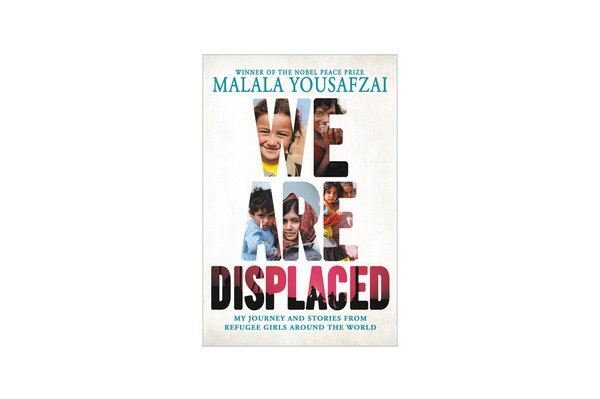Originally Published in The New York Times.

Jan. 11, 2019
As an immigrant living in Arizona, a state that has come to be defined by its ugly history with immigration, I try to teach my bilingual, bicultural daughter — she was born in the United States to an American father and a Brazilian mother — to judge people by what we have in common. Moving around, for one thing: So many of us move to new cities or countries, new schools or new homes, and not always by choice. Movement means disruption, and every disruption forces us to learn and adapt. It forces us to grow.
It is in this universal experience that Malala Yousafzai, the world’s youngest Nobel laureate, anchors WE ARE DISPLACED: My Journey and Stories From Refugee Girls Around the World (Little, Brown, 224 pp., $18.99; ages 12 and up). It is a stirring and timely book that strips the political baggage from the words “migrant” and “refugee,” telling the deeply personal stories of displacement and disruption that were lived by Yousafzai and nine other girls.
Each of the girls we meet in these pages was pushed out of her homeland by violence. In the girls’ own words, we hear about escape, resettlement and the conflicting emotions that come with fitting into a new place when so much is defined by where they came from. The accounts are intimate, and strike me as honest. At times, it felt as if the narrator were sharing her story with a trusted new friend. Contextual information at the start of each chapter — explaining, for example, the persecution of Rohingya Muslims in Myanmar — offers easy-to-digest lessons in world affairs.
As many of her readers will already know, Yousafzai had been conspicuously advocating for girls’ education in Pakistan when a Taliban gunman shot her in the head in 2012, as she was boarding a school bus, at the age of 15. She detailed this life-altering event and herremarkable recovery in her 2013 memoir, “I Am Malala.” In “We Are Displaced,” she takes us to an earlier time, when she and her family hastily fled their home in Pakistan’s Swat Valley as the army waged war against Taliban forces that had occupied the area. “All you need to know is that when you go through that kind of experience,” she writes, “there are often two extremes: Either you lose hope completely and you shatter and break into pieces, or you become so resilient that no one can break you anymore.”
We meet the Yemeni sisters Zaynab, 18, and Sabreen, 16, whose stories display the arbitrariness of the United States’ refugee system: The older sister got a visa to reunite with her mother in Minnesota; the younger sister did not. Zaynab eventually found her way to a school in Minneapolis, where girls in brightly colored hijabs made the hallways seem like “a vibrant rainbow.” Sabreen, on the other hand, endured a harrowing journey, by land and by boat, from Egypt to Italy and Belgium, where she lives under refugee status.
We also read about María, one of more than seven million people internally displaced by the decades-long civil conflict in Colombia, who suffered discrimination after arriving in a big city because of her rural accent and darker skin. Then there’s Marie Claire, who escaped the war in Congo only to be greeted in Zambia by screams of “Go back to your country.”
These are common experiences; racism and discrimination are painful elements in the daily lives of minorities in countries torn apart by war and civil unrest, but also right here in the United States. This helps make “We Are Displaced” relatable and relevant to a wide range of readers. What makes it memorable, though, is that in all these accounts, hope emerges as a kind of belligerent reaction to pain and loss. The stories of these displaced young people unfold, as Malala puts it, in the space between the “thankfulness for the countries that granted them asylum and relief to be safe.”

Leave a Reply